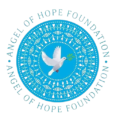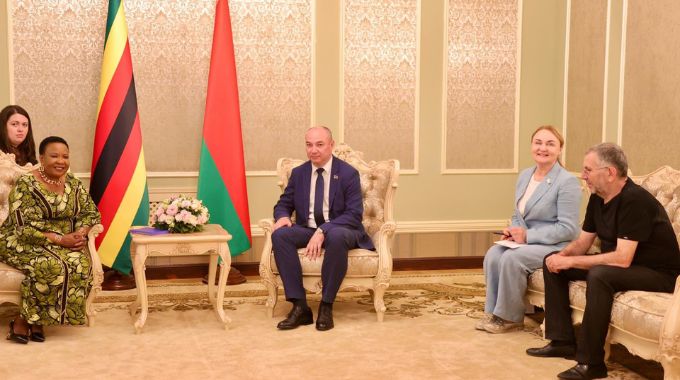Tendai Rupapa in MINSK, Belarus
Angel of Hope Foundation patron Dr Auxillia Mnangagwa, who is also the country’s Health Ambassador, yesterday held a high-level meeting with Belarusian Healthcare Minister Aliaksandr Khojayev who paid a courtesy call on her to discuss a wide range of issues, including prospects for skills and equipment transfer to Zimbabwe.
The First Lady is in Belarus with a delegation of female entrepreneurs at the invitation of the Belarusian government and businesswomen there who are inspired by her empowerment programmes and are keen to forge partnerships with their Zimbabwean counterparts.
Amai Mnangagwa’s first visit to Belarus last year at the invitation of institutions which sought to honour her for outstanding humanitarian work, unlocked various opportunities for local doctors and medical personnel.
Following her visit and engagements, she facilitated the training of a group of healthcare professionals from Zimbabwe in the use of advanced mammography equipment, ultrasound and radioactive machinery.
The doctors and nurses were also trained in Belarus through exchange programmes in various fields like oncology, screening for cancers of the colon, prostate, cervix, lungs and other in-patient and out-patient health programmes.
In 2019, the Government of Zimbabwe, through its Health and Child Care Ministry, made Dr Mnangagwa the Health and Child Care ambassador in honour of the work she is doing in support of the ministry. Amai Mnangagwa has scored remarkable achievements as the country’s health ambassador.
To date, her non-partisan humanitarian support programmes through her Angel of Hope Foundation, have benefited thousands of households in rural and urban areas, hence the keen interest by local and international organisations to support her vision.
She is indeed a champion, who has done so much work, whose list is long.
Emerging from her meeting with Minister Khojayev yesterday, Dr Mnangagwa said she will take the message to the Ministry of Health and Child Care back home and furnish them with details of issues raised by the Belarusian Minister.
Dr Mnangagwa thanked President Aleksandr Lukashenko who gifted her AoH Foundation with a mobile hospital, which is coming in handy during her medical outreach programmes for rural communities and other hard-to-reach areas in Zimbabwe.
“Firstly, may I express gratitude to the President of Belarus His Excellency Aleksandr Lukashenko for gifting Angel of Hope Foundation with a mobile hospital which we started using in one of the rural areas back home and will be used around all the other provinces. I will take the issues you raised in this meeting to the Ministry of Health and Child Care back home,” she said.
The mother of the nation hinted that Zimbabwe required assistance with medication to add on to what it already has. Minister Khojayev said Belarus would train people in pharmaceuticals and have more Zimbabwean nurses and doctors visit the country for training.
“As the health ambassador, I discussed several health-related issues with him. There are projects and programmes that Zimbabwe and Belarus are starting and it is my wish to see them come to fruition.
The Minister of Health and Child Care and his permanent secretary, have since visited Belarus to assess the country’s areas of need and cooperation,” she said.
Talking to the Minister, Dr Mnangagwa said the relationship between Belarus and Zimbabwe, should expand and grow through cooperation in various spheres, including health for the benefit of mainly women and children.
“There are so many areas in health that we feel you can come in and work with us to uplift the lives of our people because a healthy nation is a wealthy nation. The coming in of Belarus to Zimbabwe and affording my foundation that mobile hospital is a step ahead. Minister, remember that health issues touch on women and children mostly.
“The mother is the one who is so affected if there is no proper health in the household. To round it up, as a mother, I feel it is important to see the growth of the two countries and health-wise you can bring some pharmaceuticals into the country through our Ministry of Health and Child Care to enhance and support what we have already started in terms of health issues. My wish is to see Belarus working with Zimbabwe,” she said.
Dr Mnangagwa spoke about Zimbabwe’s geographical location in the middle of the Southern African Development Community (SADC) saying this could be exploited to place the country in the centre when supplying services in the region.
“When you come to Africa, Zimbabwe’s geographical position is that we are centrally located and are in the middle of Sadc region. The problems in all these countries are the same so you will serve many people,” she said.
In response, Minister Khojayev said Belarus was ready to provide whatever expertise was needed in Zimbabwe.
“We are already working in some of the areas mentioned and we are ready to move to the practical operations which include pharmaceuticals. We have these competencies and knowledge and we are able to use different equipment on the mobile unit.
“We are also keen to educate people on health issues that arise on a daily basis. We can provide education to your medical staff and we have expertise in different medical equipment. We are ready to provide what is needed,” he said.
Using her foundation’s mobile hospital and clinic, Amai Mnangagwa has worked hard to ensure people in all communities are screened and checked for ailments including non-communicable diseases on time to curb unnecessary loss of lives and ensure people go on treatment early to save lives.
Regular health checks help identify early warning signs of diseases such as cancers that can be picked up in their early stages and treated. – Herald

